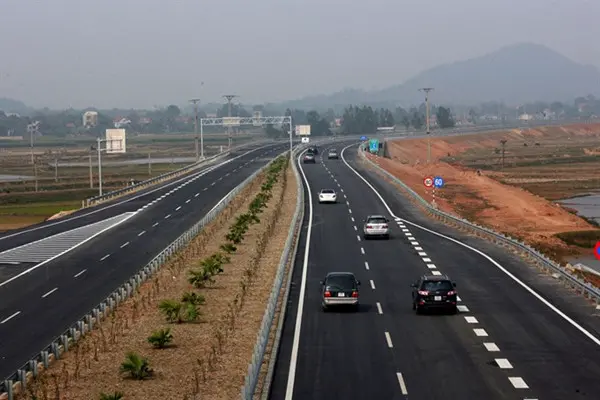Shortcomings in road transport across the border between Vietnam and other regional countries need to be solved to enhance connectivity to the international road transport system, according to local experts on Monday.
Although Vietnam, Laos, Cambodia, and Thailand have inked agreements to facilitate road transport, border linkage has not been fully implemented due to differences in legislation systems, Phan Thi Thu Hien, Deputy General Director of the Vietnam Road Administration was quoted by local Vietnam News online newspaper on Monday as saying.
According to traffic experts, once fully implemented, such agreements will promote trade, tourism development, reduce cost, increase competitiveness and contribute to each country's socio-economic development.
Nguyen Tuong, Deputy General Secretary of Vietnam Logistics Association said the problems include left or right driving, insurance liability for motorized vehicles, lack of storage or delayed procedures.
Toilet-and-meal-stop at one of the cafeterias and restaurants lining the side of the road about 1 or 2 kilometers away from the Vietnam-Cambodia border at the border-town of Bavet (Svay Rieng Province, Cambodia). Photo:howtogotocambodia.com
In addition, many border gates with incomplete road transport systems between Vietnam and regional countries could not meet demand of transportation during peak hours, Tuong said.
The expert suggested that Vietnam quickly make more policies on developing cross-border transport of goods in transit in order to attract goods from Vietnam's neighboring markets, especially goods transported by containers.
Echoing experts, Nguyen Van Thach, head of Road Safety Department under Vietnam's Ministry of Transport, said at present, only few Vietnamese transport businesses have license on freight international roads in the territory of Laos, Cambodia, Thailand, Myanmar and some provinces of China.
To facilitate the transportation, countries need to formulate regulations and simplify the administrative procedures in order to speed up the implementation of one-stop-shop customs models, halve the time of customs clearance procedures, promote connections and trading among countries in the region, Thach proposed.
(APD)
 简体中文
简体中文

